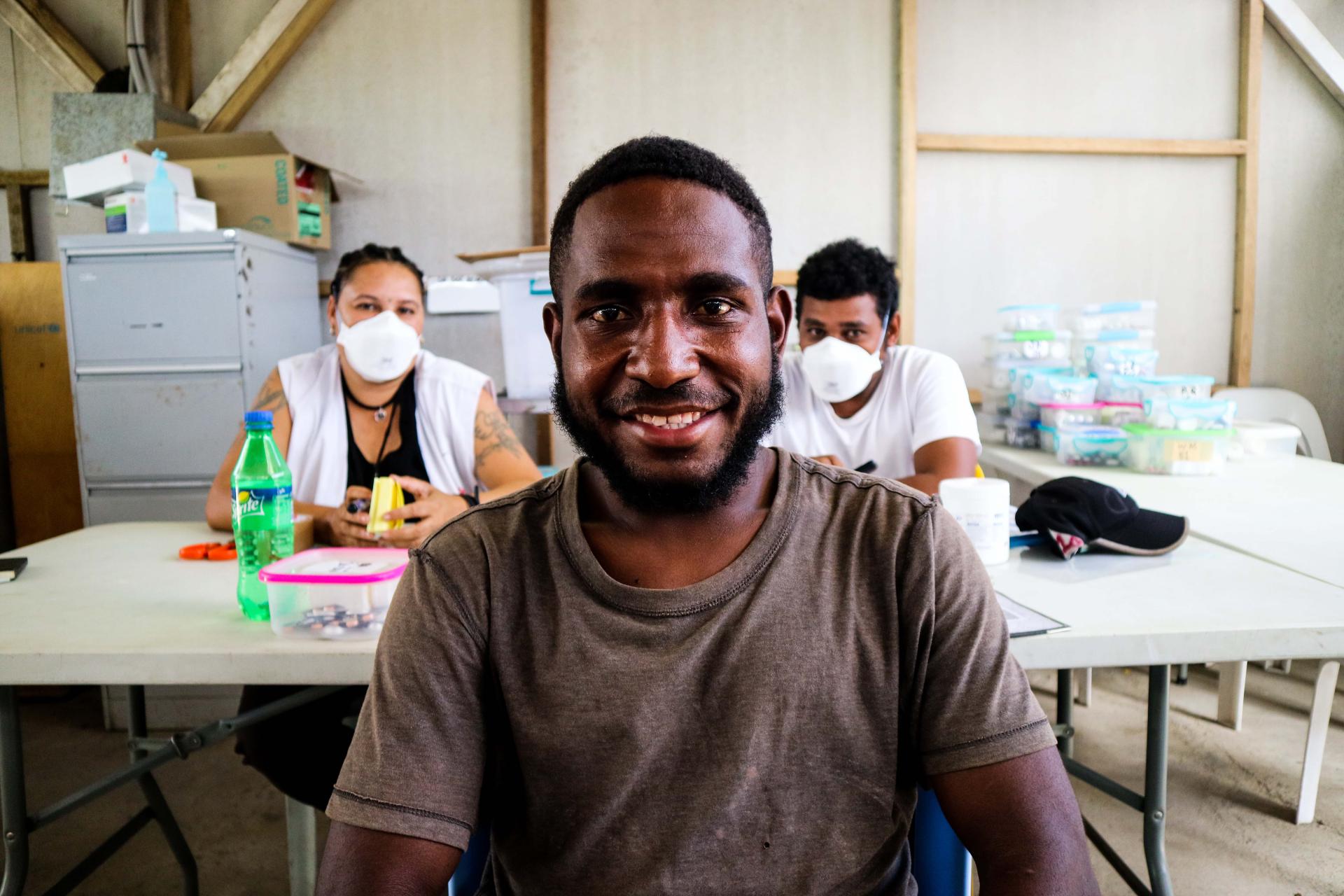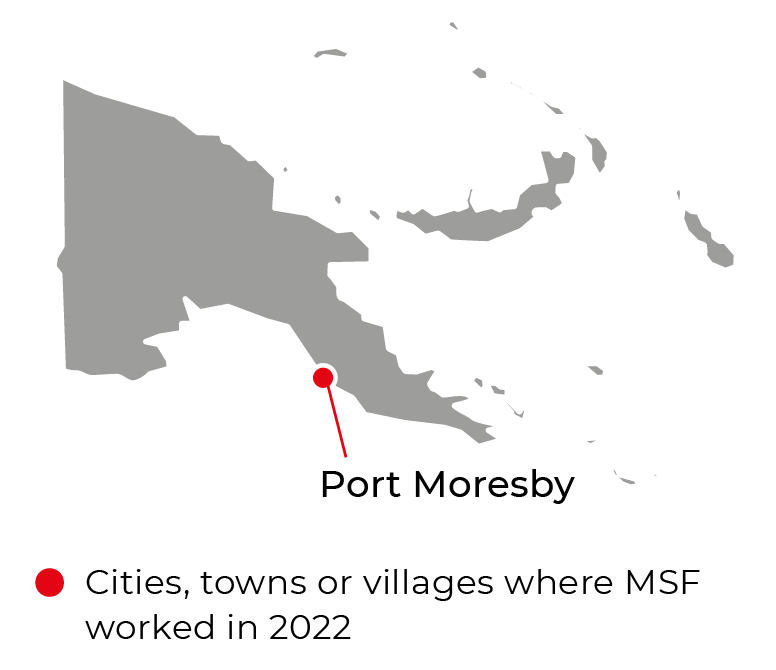
Papua New Guinea
In collaboration with the national TB programme, our team has been scaling up the capacities for screening, diagnosis, treatment initiation and follow-up in Port Moresby’s Gerehu hospital. Mobile teams work in the community to improve patient adherence to treatment.
In the Gulf province, our TB programme supports two health centres as well as Kerema General Hospital.
Our activities in 2022 in Papua New Guinea
Data and information from the International Activity Report 2022.
106
106
€3.1 M
3.1M
1992
1992

In 2022, our teams continued to collaborate with the national TB programme at Gerehu Hospital in the capital, Port Moresby, providing care to patients with drug-sensitive TB (DS-TB) and harder-to-cure, drug-resistant forms of the disease (DR-TB). In April, we finished the construction of a new clinic in Six Mile, in the northeast of the city, dedicated to the care of DR-TB patients.
In addition, our outreach team carried out home visits for patients who had difficulty accessing our clinics or adhering to treatment.
In order to reduce the prevalence rate of TB in Port Moresby, which is one of the highest in the world, we conducted community-based case-finding activities to improve early detection. We also gave health talks to provide knowledge about the disease and to explain the importance of adherence to treatment in areas of the city considered to be at high risk – especially low-income and densely populated neighbourhoods with poor sanitation. Our teams also offered preventive TB treatment to close contacts of confirmed DS-TB patients.
For patients with multidrug-resistant TB (MDR-TB), we continued to implement all-oral medication regimens, which led to overall better treatment adherence, as they removed the need for painful daily injections and had fewer severe side effects.
MSF is always seeking ways to reduce the number of patients interrupting their treatment by facilitating the process, for example, by supporting them to take their medication autonomously or assisted by a family member at home.
IN 2022

12,900
12,9
1,190
1,19
- Try a different country, year, format, or topic.
- Clear one or more filters